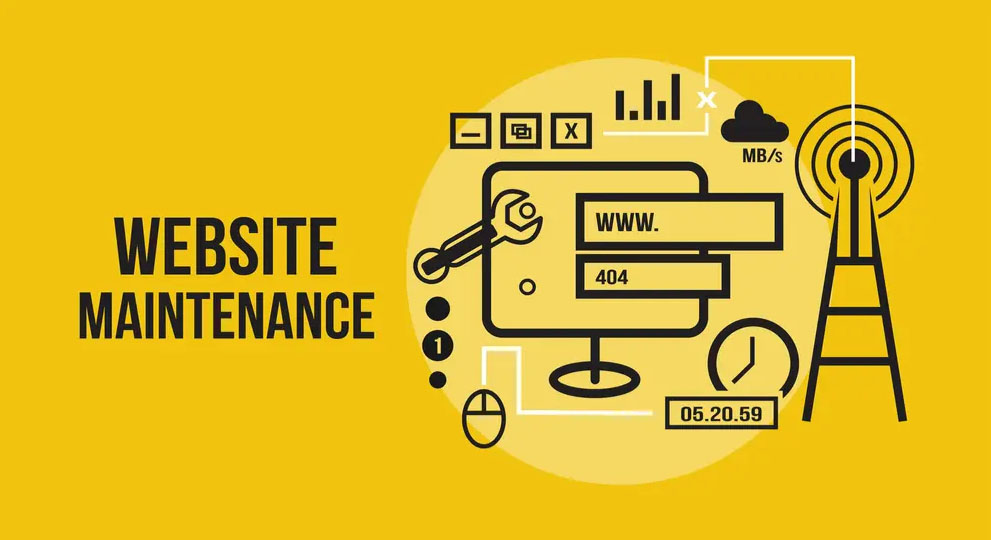It may be difficult for you to see the importance of website maintenance if your website does not get much traffic or if website visitors do not leave comments on your website. It may also be difficult to see the importance of website maintenance if no one visits your website after it has been published. But website maintenance plays an important role in making sure that website visitors have a good website experience even if they visit your website after it has been published.
While website maintenance is an important element of website management, many website owners make the mistake of neglecting their website because they think that website maintenance does not affect their website’s search engine rankings.
However, website maintenance is important in making sure that website visitors find it easy to navigate your website when they visit it for the first time and that website visitors are able to find what they are looking for on your website when they return to your website.
How website maintenance can help website visitors?
One of the website maintenance functions that website visitors look for in a website is website responsiveness. Even if you create a website that is not responsive, your website visitors will find it very difficult to visit your website if they want to access your website through their mobile phones or tablets. If you have website maintenance functions that website visitors can access, you can update the website content or add website features that will make your website more responsive.
Website Maintenance Functions That Website Visitors Look For
Simplicity in website navigation is another website maintenance function that website visitors look for when they visit a website. If your website does not have any website maintenance functions that website visitors can access, website visitors will find it difficult to find website links on your website or they may not be able to navigate your website when they want to return to a webpage that they visited before.
Practicality is also another website maintenance function that website visitors look for in a website. If you create content for website features and website maintenance that website visitors would like to use, website visitors can easily perform website tasks when they return to your website even if it has been a month since the last time they visited your website.
Website maintenance is an important element of website management because website owners who neglect their website usually lose readers or lose potential customers. If you want to make sure that website visitors will continue to visit your website, website maintenance functions should be given priority in your website development.
15 Important Tips for your Website Maintenance and Security
Your website is an important asset for your company and you need to ensure that it’s always available, secure, and performing at optimal levels.
Below are 15 website maintenance tips that can help keep your website in great shape:
Perform a website audit at least once per year:
A website audit consists of website cleaning (removing website errors, fixing website HTML tags, etc.) and website optimization (increasing website page speed, optimizing website images, etc.). A website audit is an important step in website maintenance.
Keep your website up to date:
Websites can become outdated very quickly. Many websites are still using the default Word Press theme because people don’t want to invest time in website design. However, website design is a crucial part of website maintenance and website security. You can also keep your website up to date by regularly updating your CMS, plugins, and themes.
Avoid using broken links:
Broken links are a common reason for website errors. Follow website design best practices and avoid website redirection (HTTP Status Code 302) when a website page has been removed. You can also use website monitoring tools to catch broken links early on.
Use website malware scanning:
Website malware is a major website security threat that needs to be taken seriously. Following website design best practices like website hardening will go a long way in website security.
Keep your website performance in check:
A slow website can ruin the user experience and also affect your website ranking on search engines like Google. You need to regularly monitor your website speed to ensure website performance. You can use website speed test tools to monitor website performance.
Manage website redirects:
Websites often have many URLs that lead to the same website page which can confuse users and affect website SEO. The best practice is to have a single website URL for each website page/article. You can use website redirect management tools to manage website redirects.
Ensure website security:
Website security is an important website maintenance step that cannot be ignored! You should follow website design best practices like website hardening, website monitoring, and website malware scanning steps to improve website security. You should also frequently monitor your website for website security breaches.
Manage website access logs:
Website access logs are important website statistics that can help you understand website traffic patterns and website conversions/lead generation. You should regularly review your website access logs for this purpose.
Perform website backups:
Backing up your website regularly ensures website security and website availability in the unfortunate event that your website crashes or is hacked. You can use website backup tools for this purpose.
Avoid using website redirects if possible:
Often marketers create website redirects for tracking purposes when a webpage starts getting traffic, but website redirects can confuse search engine bots and make website SEO difficult. It’s best practice to avoid website redirects if possible.
Improve website security by using website encryption:
Using website encryption is an important website maintenance step that improves website security significantly. Website encryption ensures that the data traveling between the web server and website visitors is secure. You should regularly monitor website encryption to ensure website security.
Avoid website redirects on 404 errors:
Websites often have a website redirect on a 404 page which can confuse website visitors. It’s best practice to avoid website redirects if possible, except for search engine bots of course!
Remove website redirects on website updates:
Websites often have website redirects to website pages that are no longer available which can confuse website visitors. You should remove website redirects on website updates as this is a best practice for SEO and website usability.
Avoid using 301 website redirects on homepages:
Most website homepages have website redirects which can confuse website visitors. It’s best practice to avoid website redirects on website homepages, except for search engine bots of course!
Remove website redirects on blog posts:
Websites often have website redirects from older blog pages that are no longer available which can confuse website visitors. Its best practice to remove website redirects on blog posts as this is the best website usability and website SEO practice.





